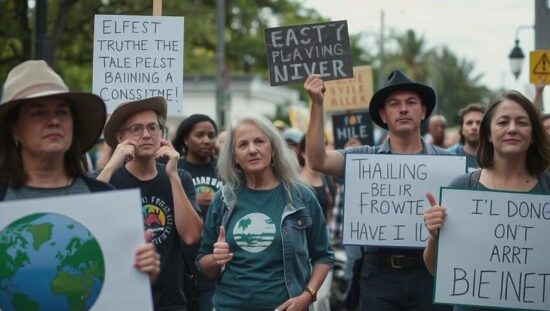Environmental organizations have sharply criticized the EU’s recent climate targets, alleging significant loopholes and a dilution of commitment that undermines the bloc’s leadership role on the global stage. The compromise reached by EU environment ministers, while averting a potential embarrassment, falls far short of ambition and risks jeopardizing the Paris Agreement goals.
A key point of contention is the allowance for up to five percent of emissions reductions to be met through the utilization of international carbon credits. Critics warn this provision effectively allows EU nations to outsource climate action, diminishing the impact within the EU itself and potentially hampering the competitiveness of European industries. “This loophole with credits from abroad threatens to undermine the integrity of EU climate policy” stated Christoph Bals, policy director at Germanwatch.
The newly established target for 2035 – a reduction of greenhouse gas emissions by 66.25 to 72.5 percent compared to 1990 levels – is also under fire. Experts argue this represents an inadequate commitment, particularly as it lags behind recommendations from the EU’s own climate advisory board. “The EU is joining the ranks of states with moderate or unclear climate targets” remarked Petter Lydén, head of international climate policy at Germanwatch.
The postponement of the EU Emissions Trading System (ETS) for the building and transport sectors by a year has also drawn criticism, along with concerns about potential future revisions of the agreed-upon targets. Proposals for member states to be relieved of the obligation to meet natural carbon sink targets are particularly worrying, with analysts pointing out the missed opportunity to enhance forest, wetland and grassland protection. There are also fears that member states might seek to purchase additional international certificates, further externalizing climate action.
The weakening of the EU’s negotiating position ahead of the upcoming COP30 climate conference in Brazil is a significant concern. Sarah Zitterbarth, Greenpeace’s international climate policy expert, emphasized that the current trajectory places the Earth on track for a dangerous warming of 2.8 degrees Celsius by 2100, according to the recent Emissions Gap Report. “Now, EU member states must do everything they can at COP30 to close the ambition gap and contain the escalating climate crisis with a global energy transition” she asserted.
Viviane Raddatz, head of climate at WWF Germany, expressed skepticism about the sufficient implementation of the agreed-upon goals, citing the “massive weakening” of the Green Deal. She called for a rapid and comprehensive electrification of the economy driven by clean renewable energy sources, advocating for leadership rather than loopholes. The EU’s agreed upon target of a 90 percent reduction in emissions by 2040 appears increasingly unattainable with the latest compromises.





